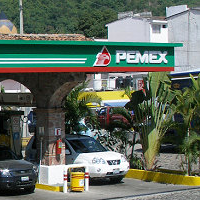As the recession recedes, fuel prices have begun to soar across Latin America, confronting governments with the dilemma of how to balance fiscal demands with energy subsidies that are increasingly wreaking budgetary havoc, especially in the Andean nations. The Bolivian and Chilean governments' recent efforts to confront that dilemma led to dramatic images of unrest, with protesters in both nations burning tires, throwing rocks and building barricades in response to announced policy changes.
At the end of December, major cities across Bolivia erupted when President Evo Morales' government decided to remove price controls that were artificially depressing fuel prices. The move would have increased fuel prices by as much as an estimated 83 percent. The protests quickly engulfed the nation, forcing an abrupt U-turn on the part of the government.
No sooner had the tires stopped burning in Bolivia than tensions boiled over in the southern Magallanes region of Chile. With the onset of the new year, Chile's national oil company, ENAP, announced a plan to cut natural-gas subsidies in the country's south. The policy meant that Magallanicos, as the region's inhabitants are known, would see their gas prices rise by more than 16 percent. Residents of the frigid region, for whom gas subsidies have become a way of life, were not pleased with the announcement.

